How to Choose the Right Health Insurance Plan for You
Choosing a health insurance plan can feel overwhelming. With so many options, confusing jargon, and varying costs, it’s easy to feel stuck. But the right health insurance plan can provide peace of mind, financial protection, and access to the care you need. Whether you’re navigating the marketplace, exploring Medicare, or considering options for your family, this guide will help you make an informed decision.
In my experience, finding the right health insurance is about balancing your budget, healthcare needs, and long-term goals. I also work with a team at Move Health who specializes in health insurance and Medicare solutions. They can guide you through the process, ensuring you get the coverage you need without the stress.
Why Listen to Me?
As a CERTIFIED FINANCIAL PLANNER™ professional, I’ve helped individuals and families make health insurance decisions that align with their financial goals. Health insurance isn’t just a medical issue—it’s a financial one, and making the right choice can save you significant money and stress over time.
👉 Want to learn how to retire without the worry of running out of money in retirement? Click here to watch this video
Key Takeaways
• Understanding your healthcare needs is the first step in choosing the right plan.
• Different plan types—HMO, PPO, EPO, and HDHP—offer unique benefits and trade-offs.
• Premiums, deductibles, and out-of-pocket costs play a significant role in your overall costs.
What Are Your Healthcare Needs?
Before diving into specific plans, take a moment to assess your healthcare needs. Ask yourself:
• How often do I visit the doctor?
• Do I need coverage for specialists or ongoing treatments?
• Am I managing chronic conditions or expecting major medical events (e.g., pregnancy)?
• What prescriptions do I take regularly?
Understanding your needs will help you narrow down plans that offer the right balance of coverage and affordability.

Key Features of Health Insurance Plans
1. Plan Types
Health insurance plans fall into four main categories:
• HMO (Health Maintenance Organization): Lower premiums, but you must use in-network providers and get referrals for specialists.
• PPO (Preferred Provider Organization): Higher premiums, but more flexibility to see out-of-network providers and specialists without referrals.
• EPO (Exclusive Provider Organization): A middle ground between HMO and PPO; no referrals needed but limited to in-network providers.
• HDHP (High Deductible Health Plan): Lower premiums and higher deductibles; ideal for healthy individuals who want to pair with a Health Savings Account (HSA).
2. Premiums, Deductibles, and Out-of-Pocket Costs
• Premium: The amount you pay monthly for coverage.
• Deductible: The amount you pay out-of-pocket before insurance starts covering costs.
• Out-of-Pocket Maximum: The most you’ll pay in a year for covered services.
In my experience, balancing these costs is key. If you visit the doctor frequently, a higher premium and lower deductible might save you money. If you’re healthy, a lower premium plan with a higher deductible could work better.
3. Coverage for Prescription Drugs
Review the plan’s formulary to ensure your medications are covered. Some plans categorize drugs into tiers, with different costs for generic, brand-name, and specialty medications.
4. Network of Providers
Ensure your preferred doctors, specialists, and hospitals are in the plan’s network. Going out-of-network can significantly increase your costs.
How to Compare Health Insurance Plans
Step 1: Gather Your Options
Whether you’re using an employer-sponsored plan, the ACA marketplace, or Medicare, start by reviewing all available options.
Step 2: Compare Costs
• Look Beyond the Premium: Consider deductibles, copayments, and out-of-pocket maximums.
• Estimate Your Usage: Use past medical bills to estimate how often you’ll need care.
Step 3: Evaluate Additional Benefits
Many plans offer extras like telemedicine, mental health services, or wellness programs. These can add significant value depending on your needs.
What About Medicare?
If you’re nearing 65, Medicare is another option to explore. Medicare has several parts:
• Part B: Medical insurance.
• Part D: Prescription drug coverage.
• Medicare Advantage (Part C): Combines Parts A and B, often with additional benefits like dental or vision.
In my experience, working with a specialist like Move Health can simplify the Medicare enrollment process and help you choose the best plan for your needs.

FAQs About Health Insurance
1. Can I Use an HSA with Any Plan?
- No, HSAs are only available with High Deductible Health Plans (HDHPs). Contributions to an HSA are tax-deductible, grow tax-free, and can be withdrawn tax-free for qualified medical expenses.
2. How Do I Prove Expenses for an HSA?
- Keep receipts for eligible expenses like doctor visits, prescriptions, and even some alternative therapies like acupuncture.
3. Can I Change My Plan Mid-Year?
- Generally, you can only change plans during the open enrollment period unless you experience a qualifying life event (e.g., marriage, birth of a child).
Case Study: Choosing the Right Plan
Scenario: John, a 35-year-old freelancer, wants affordable coverage that protects him against catastrophic medical expenses.
Solution:
John chose a High Deductible Health Plan (HDHP) with an HSA. He contributes to the HSA monthly, giving him a tax-advantaged way to save for future medical expenses while keeping his premiums low.
Conclusion
Choosing the right health insurance plan doesn’t have to be overwhelming. By assessing your needs, understanding plan options, and balancing costs, you can find a plan that fits your lifestyle and budget. Whether you’re navigating the ACA marketplace, exploring Medicare, or evaluating employer-sponsored plans, taking the time to compare options will pay off in both savings and peace of mind.
👉 Want to learn how to retire without the worry of running out of money in retirement? Click here to watch this video
Disclaimer: Case studies are hypothetical and do not relate to an actual client of Lock Wealth Management. Clients or potential clients should not interpret any part of the content as a guarantee of achieving similar results or satisfaction if they engage Lock Wealth Management for investment advisory services.
